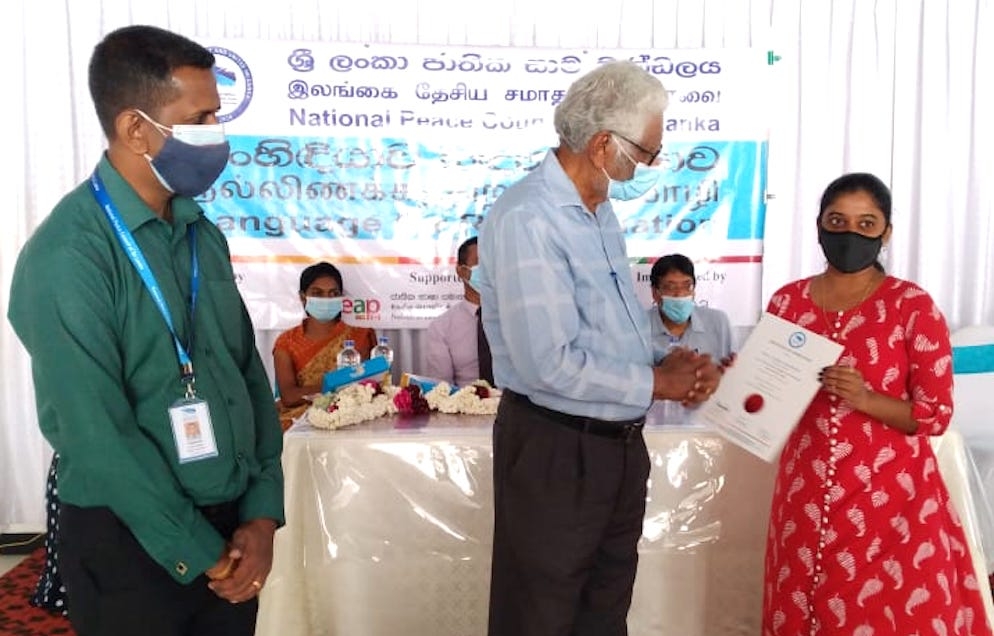Language was a key dividing factor in the early years of Sri Lanka’s independence and it continues to be a source of tension between communities, especially now when there is an economic downturn where resources are scarce and there is competition between people and communities for survival. Differences in linguistic, ethnic and religious identity can become focal points for mobilising conflict.
NPC is engaging in a range of activities that foster national integration and social cohesion. Government support is being given to peace building activities at the local level. Government officials are permitting their representatives to participate in inter ethnic and inter religious initiatives because they do not wish to have conflicts escalating in their areas that could result in the destruction of life and property. They also want to understand the underlying issues and develop ways to handle tension through non-coercive methods.
Through the National Languages Equality Advancement project (NLEAP) supported by Canada, NPC strengthens gender sensitivity and bilingual communication skills of public officers and improves the capacity of ministries to deliver public services in both official languages at national levels. Local Inter Religious Committees (LIRCs) audit the performance of government institutions in their areas and suggest reforms.
The certificate award ceremony for those who completed their second language course took place in Trincomalee where the three ethnic communities live in equal numbers and there is a need for government officials to be able to communicate in the second language.

